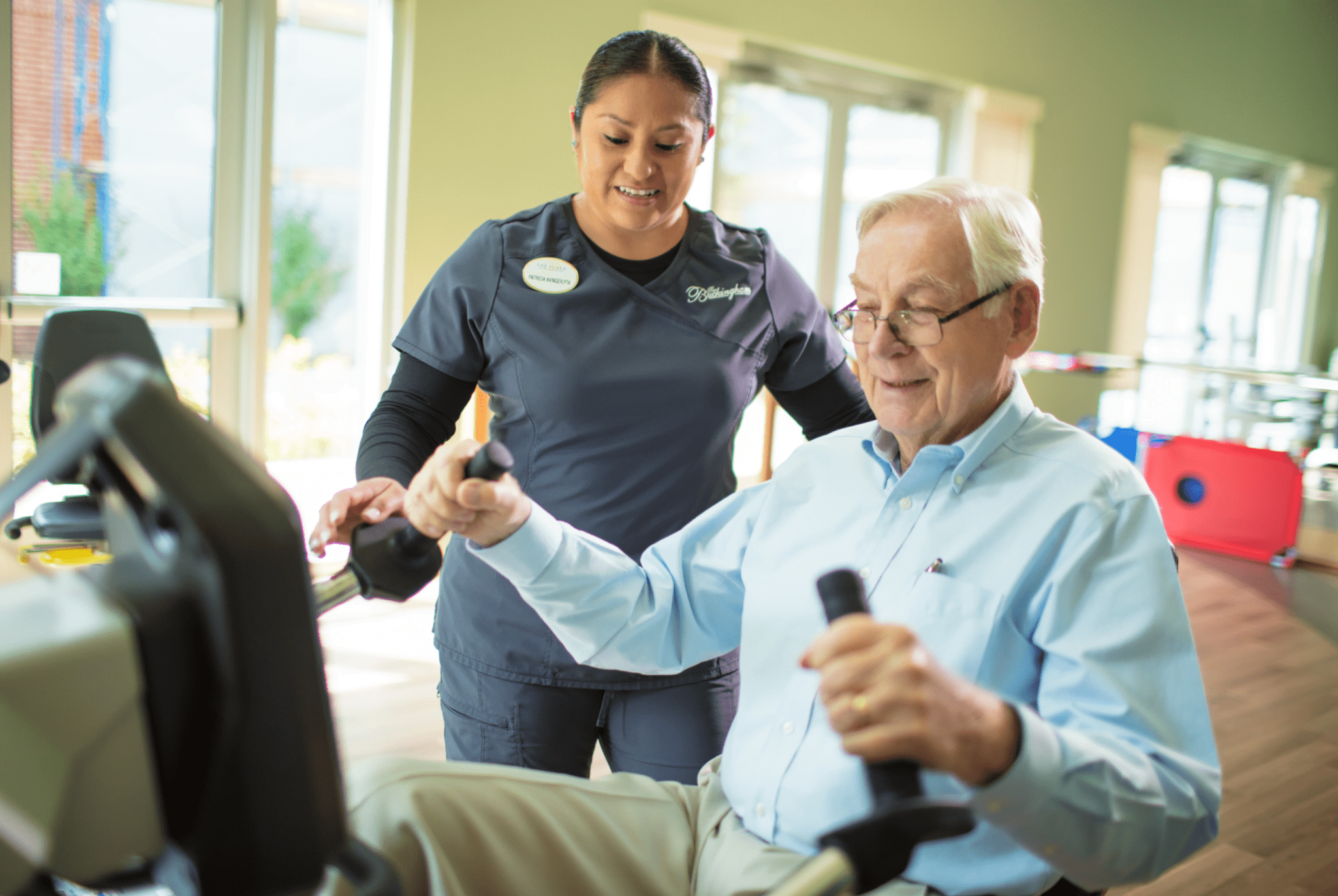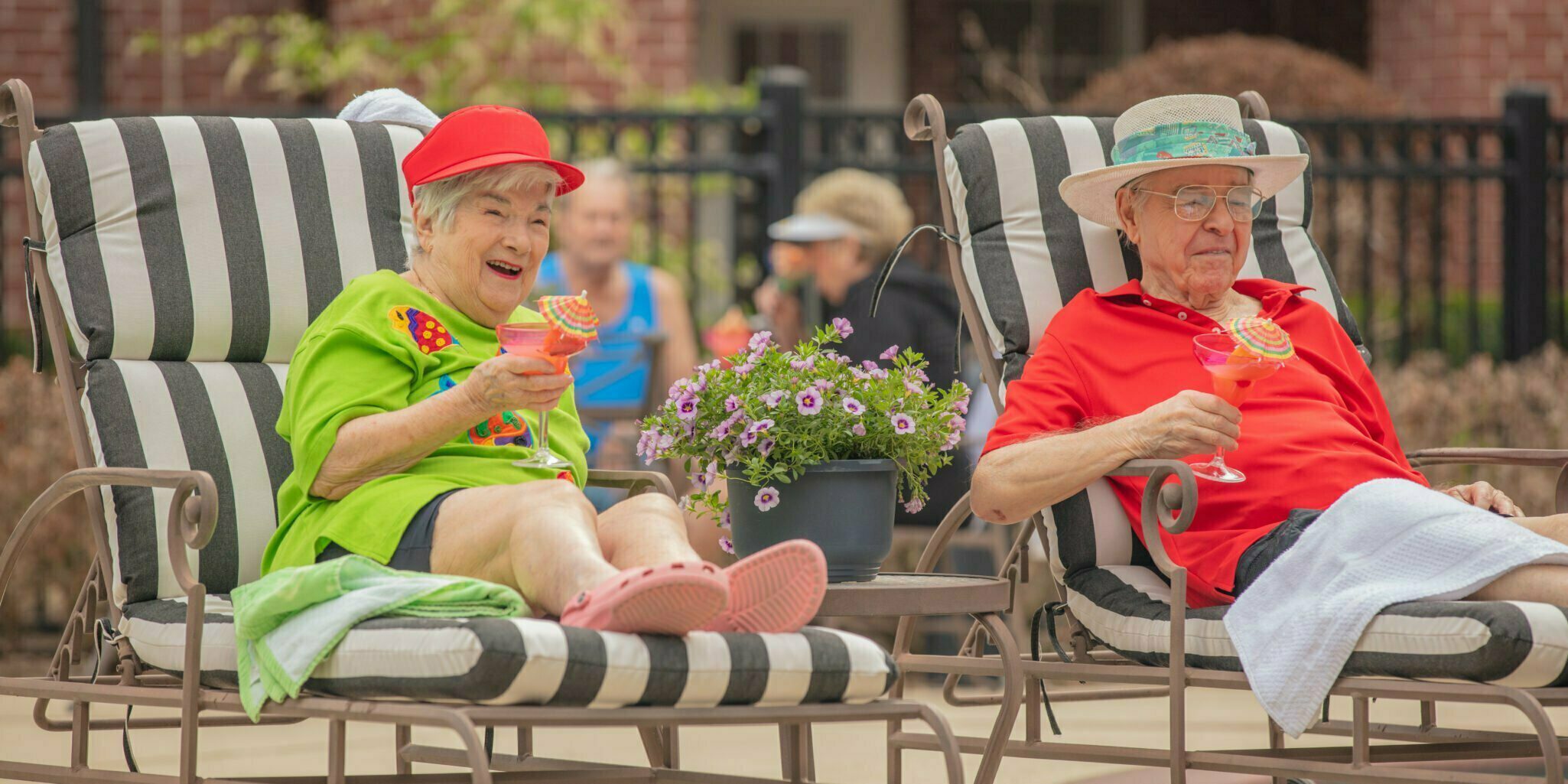
Rehabilitative Therapies for Seniors – A Guide
Whether they’re recovering from an illness, healing from an injury or are simply looking to restore and maintain their independence, rehabilitative therapy has a lot to offer for seniors – but industry-specific terminology can make it tricky to make sense of what is right for you. In this article, we’ll break down the most common senior rehabilitative services to help you better understand which options may best suit your needs.
 The Benefits of Physical Therapy for Seniors
The Benefits of Physical Therapy for Seniors
At its core, physical therapy is any program of exercises that work to heal the body and restore lost functionality. You may most commonly hear the term applied when talking about recovery from an injury or major surgery – like a broken bone, ligament tear or hip replacement. However, physical therapy has many more applications that aren’t immediately obvious – here’s a few of the conditions that can be treated with physical therapy:
- Strokes and other neurological conditions.Recovery from a stroke isn’t a passive activity. Physical therapy is often used to remap the brain – forming new neural pathways that restore motor control and allow patients to walk, speak, write, etc.
- Arthritis. Using a variety of techniques (including water exercise, electrical stimulation and ice baths to reduce inflammation), physical therapists can alleviate some of the pain and stiffness associated with arthritis.
- Balance issues. Loss of core and leg strength is a normal part of the aging process. Unfortunately, it’s also one of the biggest contributing factors to life-threatening falls and other harmful accidents. Therapist-designed training programs can do a lot to help older adults stave off this loss of balance.
What is Occupational Therapy?
Despite the name, occupational therapy for elderly people has nothing to do with job training. So what is it? Unlike physical therapy, it’s a more holistic approach – instead of focusing on the functionality of individual parts of the body, occupational therapy is designed to help seniors perform activities that are vital to their daily lives.
For senior citizens, occupational therapy is often used to help them adjust to a temporary or permanent disability, making it easier to manage essential activities like bathing, dressing, cooking and cleaning. By focusing on what a person can do and finding ways to better suit those capabilities, occupational therapists promote a sense of self-reliance that boosts emotional wellbeing. For more permanent help you could consider an assisted living community.
How Speech Therapy Can Help
If you asked most people, they’d probably tell you that this type of therapy is for kids who have trouble with stuttering or articulation. However, the truth is that people of all ages can experience the benefits of speech therapy in important ways.
A speech therapist treats people who have disorders related to voice, communication, cognition, attention and problem solving. For seniors, speech therapy can be a vital element in managing conditions like Parkinson’s, Alzheimer’s, dysphagia (inability to/trouble with swallowing), along with other conditions that affect the lungs, throat and voice. It’s common that a speech therapist would work with physical and occupational therapists to create a treatment plan suited to each individual’s needs.
Rehabilitative Therapy at The Buckingham
When it comes to the health and wellness of our residents, we understand that each type of rehabilitative therapy is only one part of the big picture. That’s why we work hand-in-hand with caregivers, physicians and therapists to craft a plan for each senior who enters our rehabilitation program
If you or your loved one could benefit from our in-depth, personalized rehabilitative care services, please don’t hesitate to contact us. Direct entry is available, even if you aren’t a current resident and doesn’t require an entrance fee. We’re eager to share more information and serve as the springboard to your recovery.

